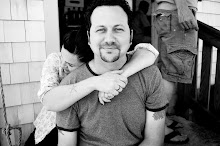I read Philip Gourevitch’s We Wish To Inform You That Tomorrow We Will Be Killed With Our Families, a compelling account of the Rwandan genocide in which 800,000 people were murdered with machetes in 100 days, during my first year of law school.
I was struck by the book and the horrors it records and, after reading it, I aspired to be similarly willing to go where I was needed and to engage even the worst things that the world has to offer with open eyes.
Gourevitch prefaced the book with a quote from Plato’s Republic:
“Leontius, the son of Aglaion, was coming up from the Peiraeus, close to the outer side of the north wall, when he saw some dead bodies lying near the executioner, and he felt a desire to look at them, and at the same time felt disgust at the thought, and tried to turn aside. For some time he fought with himself and put his hand over his eyes, but in the end the desire got the better of him, and opening his eyes wide with his fingers he ran forward to the bodies, saying, ‘There you are, curse you, have your fill of the lovely spectacle.’"
Sometimes when I meet other death penalty lawyers, people who work in human rights whose daily work confronts famine or genocide, journalists on the crime beat, or anyone else whose job puts them face to face with the ugliness that is manifest in so many places in the world, I think about the quote and wonder how we ended up doing what we do.
On a trip to California a few years ago to see my brother, a wine seller for the terrific Robert Sinskey Vineyard, he pointed out, after some delicious wine, that he ended up working in a field selling something that we both love, that brings people joy and pleasure, and I ended up doing work that originates from circumstances that horrify me, where people were killed and others may be.
I suppose it's no accident.
Subscribe to:
Post Comments (Atom)

I don't know; the circumstances horrify, but your work gives me joy and pleasure-- just intellectual joy and humane pleasure rather than. . . boozy. Of course sometimes they're also boozy.
ReplyDelete